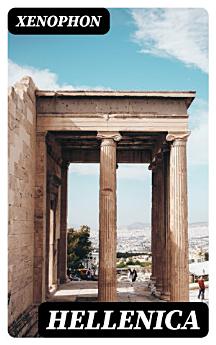Hellenica
Mei 2022 · DigiCat
Kitabu pepe
315
Kurasa
family_home
Kimetimiza masharti
info
reportUkadiriaji na maoni hayajahakikishwa Pata Maelezo Zaidi
Kuhusu kitabu pepe hiki
Xenophon's "Hellenica" serves as a crucial historical narrative that chronicles the final years of the Peloponnesian War and the ensuing events of the Greek world up to 362 BCE. Written with a clear, engaging prose style, the work exhibits Xenophon's unique perspective as both a soldier and a historian, combining firsthand observation with extensive research. Unlike Thucydides' more analytical approach, Xenophon's narrative is infused with a sense of moral inquiry and character analysis, reflecting the tumultuous political landscape of post-war Greece and showcasing significant figures like Socrates, Alcibiades, and the Spartan leaders. The text is not merely a historical account; it is an exploration of ethical leadership amidst civic strife, placing it firmly within the tradition of classical historiography. Xenophon, an Athenian-born soldier, philosopher, and student of Socrates, drew upon his experiences in various military campaigns and his disdain for the chaotic political environment of his time to compose "Hellenica." His background in philosophy profoundly influenced his insights into leadership and virtue, shaping his interpretations of historical events. Living in a transitional period marked by the decline of Athenian power, his work reflects both his love for Greece and his desire to provide an enduring evaluation of its political and ethical conditions. "Hellenica" is essential reading for those interested in ancient Greek history, military strategy, and ethical philosophy. Its multifaceted approach renders it not only a source of historical knowledge but also a profound commentary on the nature of power and morality. Readers seeking to understand the foundations of Western thought and leadership will find Xenophon's exploration illuminating and relevant.
Kuhusu mwandishi
Xenophon (c. 430 – 354 BCE) was an ancient Greek historian, soldier, mercenary, and a disciple of Socrates. Born in an Athenian suburb, his works span a panoply of subjects covering history, biography, and philosophy. Xenophon's 'Hellenica' serves as a primary historical source for events in Greece from 411 to 362 BCE, acting as a continuation of Thucydides' 'History of the Peloponnesian War'. 'Hellenica', covers the closing years of the Peloponnesian War and its aftermath, and is particularly valued for its firsthand accounts of military engagements in which Xenophon himself participated. Beyond 'Hellenica', his notable works include 'Anabasis', a thrilling recount of the expedition of the Ten Thousand, and the Socratic dialogues such as 'Memorabilia'. His literary style is characterized by straightforwardness and a lack of rhetorical flourishes, which makes his writing clear and accessible. A man of practical intellect, Xenophon's works have been influential in both military theory and in the revival of interest in Socrates' philosophy in later centuries. His treatises on leadership and governance, 'Cyropaedia', are considered precursors to modern leadership studies. In sum, Xenophon's contributions to history and literature render him a significant figure within the canon of Classical Greek literature.
Kadiria kitabu pepe hiki
Tupe maoni yako.
Kusoma maelezo
Simu mahiri na kompyuta vibao
Sakinisha programu ya Vitabu vya Google Play kwa ajili ya Android na iPad au iPhone. Itasawazishwa kiotomatiki kwenye akaunti yako na kukuruhusu usome vitabu mtandaoni au nje ya mtandao popote ulipo.
Kompyuta za kupakata na kompyuta
Unaweza kusikiliza vitabu vilivyonunuliwa kwenye Google Play wakati unatumia kivinjari cha kompyuta yako.
Visomaji pepe na vifaa vingine
Ili usome kwenye vifaa vya wino pepe kama vile visomaji vya vitabu pepe vya Kobo, utahitaji kupakua faili kisha ulihamishie kwenye kifaa chako. Fuatilia maagizo ya kina ya Kituo cha Usaidizi ili uhamishe faili kwenye visomaji vya vitabu pepe vinavyotumika.








